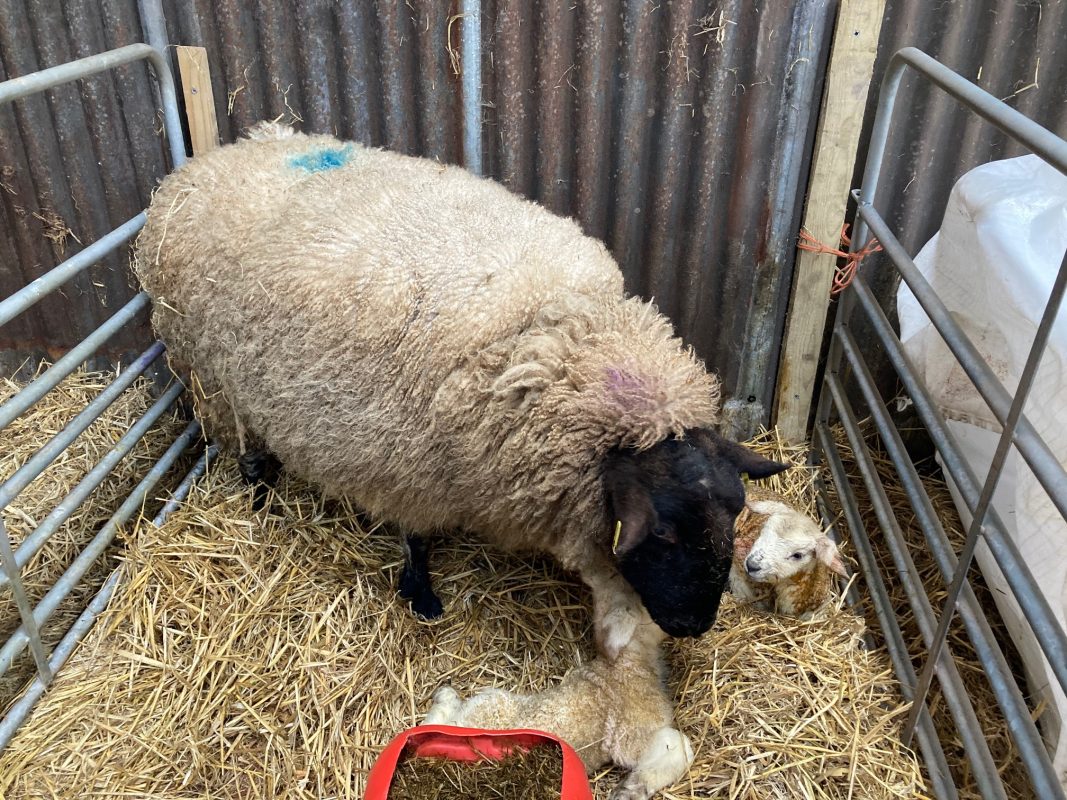With lambing season in full swing in the UK and Ireland at present, many sheep farmers are facing the challenge of watery mouth in lambs, E. Coli infection in lambs or “rattle belly” as it is sometimes known as.
What is watery mouth in lambs?
Watery mouth is a bacterial infection caused by E. Coli which affects newborn lambs typically between 6 and 48 hours old. It is most common with indoor flocks or intensively farmed flocks at pasture especially later in the lambing period. Twins or triplets are at greatest risk especially if they have a low birth weight or if the ewe is in poor condition.
Within the first few hours of life, a lamb can pick up the E. Coli bacteria from the ewe’s fleece as it looks for the udder or if the bedding is soiled. Newborn lambs have no immunity to E. Coli. When infection occurs, the bacteria colonises in the guts where it rapidly multiplies. The lamb will be lethargic and will be drooling excessively, hence the name “watery mouth”. It will then refuse to feed with a swollen gut, have diarrhoea and a rattling sound will be heard from its belly. (NB “Rattle belly” is another term sometimes used by farmers to describe watery mouth.) A few hours later, the affected lamb will fall into a coma and then die.
How to prevent watery mouth in lambs
Use ImuLamb from Natural Farm Health
ImuLamb is a natural product from Natural Farm Health that should be given to newborn lambs immediately after birth. It has been designed to support the lamb’s resistance to watery mouth and support its vitality whilst in the lambing pens. For more information about ImuLamb, please click on the photo below or call us on 07711 461133.
Good hygiene in the lambing shed
Towards the end of the lambing season, cases of watery mouth can increase as there is a greater bacterial challenge in the lambing shed. Good levels of hygiene are therefore extremely important with plentiful clean dry straw bedding and thorough cleaning and disinfection of pens after each lambing ewe. Natural Farm Health’s Cloversan and Enviromist products could be used for optimum hygiene in the lambing shed. If weather conditions permit, lambs should be born outdoors.
Move other pregnant ewes to another shed or out to pasture
If there are cases of watery mouth in the lambing shed, move other pregnant ewes to a different shed or out to pasture.
Colostrum within first six hours
If a newborn lamb receives lots of colostrum during the first six hours of life, it is less likely to pick up watery mouth disease. Twins and triplets may need to get additional bottle feeding to make sure they get sufficient colostrum. It is of course very important that the ewe is healthy in the pre-lambing period to ensure that she has plenty of colostrum for the lamb.
Isolate any sick lambs
Keep any sick lambs away from any other newborn lambs to help prevent the spread of watery mouth.
Case Study – Watery Mouth in Lambs
In February 2020, a County Tyrone sheep farmer contacted Natural Farm Health for help with a “dreadful problem with watery mouth” after his first 20 ewes had lambed. He used ImuLamb with the lambs born from his other 80 ewes and “had no bother for the rest of the lambing season”. He also recommended ImuLamb to a neighbouring sheep farmer who was about to start lambing and he encountered no cases of watery mouth with his flock.


